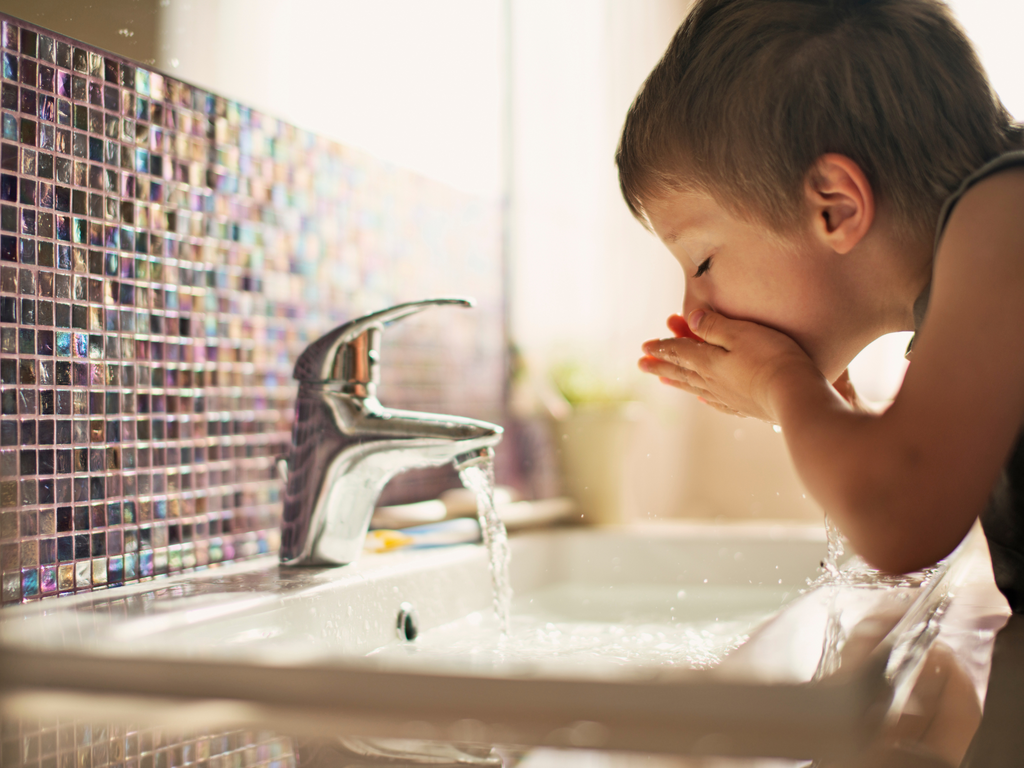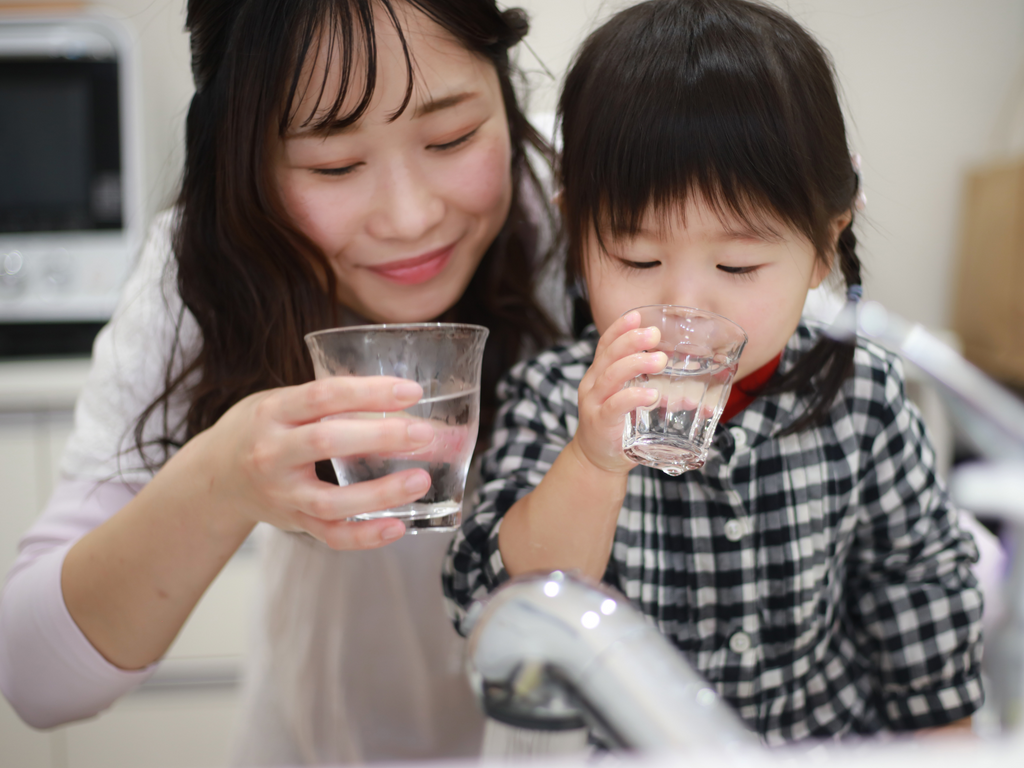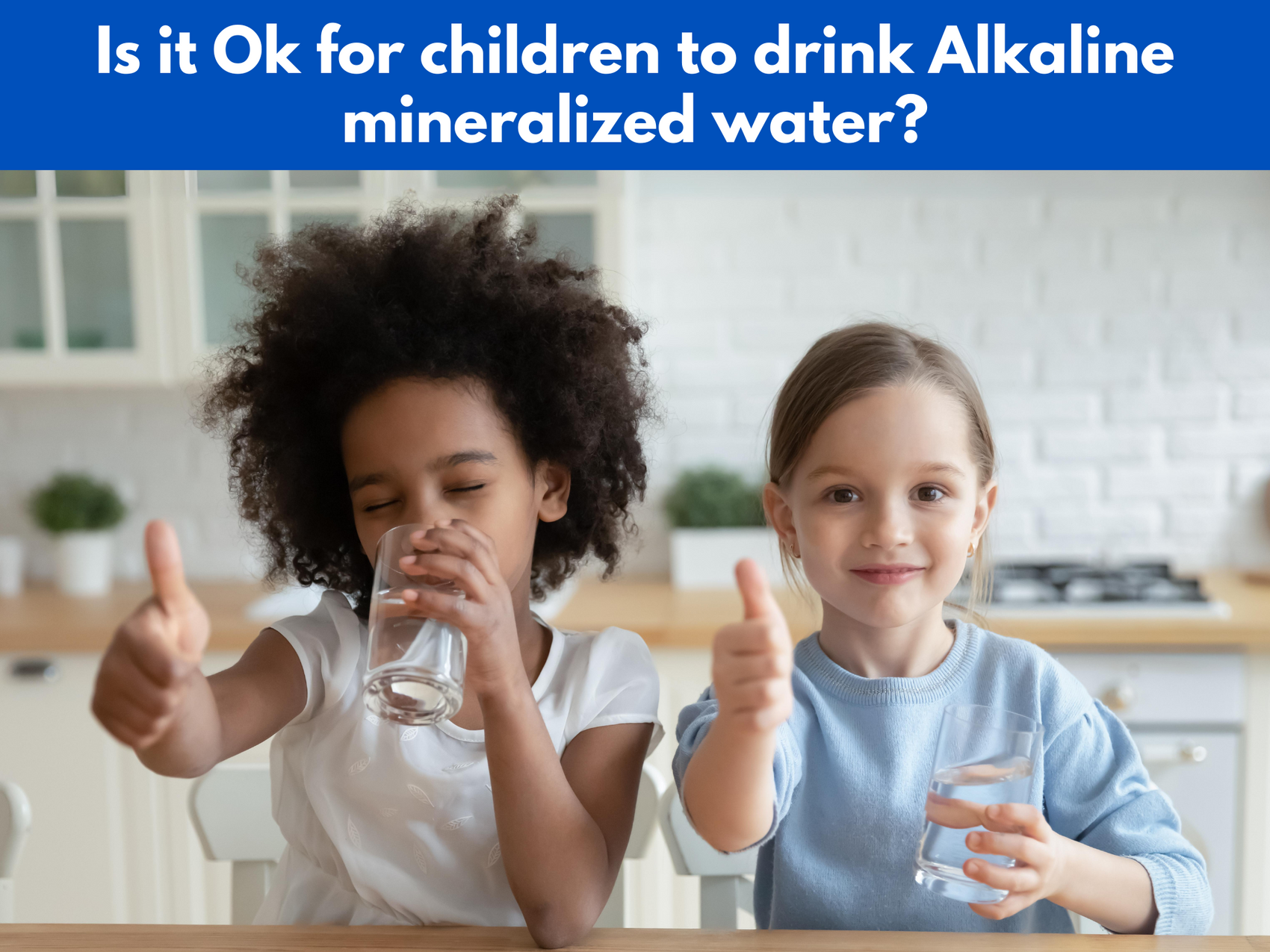Water stands as a fundamental element for life's sustenance, particularly crucial for the health of children. As we continuously strive to enhance our children's well-being, a pertinent question arises: "Is it OK for children to drink alkaline mineralized water?"
Mineral-rich alkaline water holds 40 scientifically proven health benefits for children across various age groups, akin to the advantages it offers adults. But how suitable is mineralized water for children?

Toxicity Concerns with Regular Tap Water
Let's explore why conventional tap water might not be the optimal choice for children. It's indeed alarming that our public water supplies can serve as significant sources of exposure to various potentially harmful chemicals.
Public tap water often contains undesirable contaminants such as microplastics, fluoride, sediments, solvents, and toxins. These contaminants impart an unpleasant taste and odor to the water but also pose significant health risks.
Why Choose Mineral-Rich Alkaline Water?
Mineralized water emerges as a viable alternative due to its superior mineral content and purity in comparison to regular tap water. Employing an alkaline mineral water purifier, such as the Life Sciences Alkaline Mineral Water Systems, can prove highly beneficial. It effectively filters out harmful substances while replenishing essential minerals.

The Health Benefits of Alkaline Mineralized Water for Children
With a burgeoning population of health-conscious parents, alkaline water has witnessed a surge in demand. But what attributes make it a preferable choice for children? Let's explore the benefits of alkaline mineralized water:
- Enhanced Hydration: Mineralized water, with its micro-clustered structure and rich mineral content, ensures superior hydration compared to tap water.
- Improved Digestion: Mineralized water has been linked to reduced acid reflux occurrences, promoting better digestion among children.
- pH Regulation: Mineralized water maintains optimal blood pH levels, thereby enhancing overall circulation.
- Potent Antioxidant Properties: Rich in antioxidants, mineralized water aids in the elimination of free radicals that could harm cells
- Boosted Immunity: The antioxidant properties of mineralized water play a crucial role in shielding children from illnesses and bolstering their immune systems.

Alkaline Mineralized Water for Infants
For infants, breast milk or formula remains the primary source of hydration until six months. It's advisable to continue with breast milk or formula as the primary source of hydration until the child reaches the age of one year.
Once infants transition to consuming water, it's recommended to introduce mineralized water, albeit at a low concentration ranging from 1.0 pH to 6.5 pH. Daily water intake begins with eight to sixteen ounces of water.
Alkaline Mineralized Water for Toddlers
As toddlers progress from formula or breast milk, it's essential to incorporate other beverages such as vegetable milk, fruit juices, and water into their diet.
However, it's imperative to avoid excessive consumption of mineralized water by toddlers, as it may lead to water intoxication. Mineralized water intake should be balanced with other beverages.
For children under two years of age, aim for a daily water intake of 44 fluid ounces, with a pH level ranging from 8.5 to 9.0.

Alkaline Mineralized Water for Older Children
Older children tend to prefer mineralized water over conventional beverages. At this stage, it's feasible to substitute their regular beverage with alkaline mineralized water.
Encouraging children to consume their vitamins with mineralized water adjusted to the appropriate pH level can significantly enhance vitamin absorption.
- Preschoolers: Active preschoolers can safely consume up to 44 oz of mineralized water per day, preferably with a pH range of 8 to 8.5.
- School-Aged Children: Gradually increasing their intake to approximately 65 oz of mineralized water per day is advisable.

Alkaline Mineralized Water and Teenagers
Teenagers often find mineralized water more appealing than conventional tap water. However, given their ongoing physical development, maintaining a balanced electrolyte level is crucial.
Teens should aim for a daily water intake of at least 2 to 3 liters, with a pH level ranging from 9.5 to 9.7.
Safety Guidelines for Children
Medication and Mineralized Water: It's advisable to refrain from providing alkaline water to children 30 minutes before or after they take prescribed or over-the-counter medications.
Timing with Meals: Avoid administering mineralized water 30 to 45 minutes before, during, or after meals. Optimal conditions for meal consumption involve a neutral environment.
By adhering to these guidelines and incorporating mineralized water into children's diets in a balanced manner, parents can contribute significantly to their overall health and well-being.
Conclusion:
Maintaining healthy alkalinity levels in your child's body can improve well-being. Staying well-hydrated is key for maintaining acid-base balance. Drinking alkaline mineral-rich water flushes out excess acids and keeps pH levels in check.
Life Sciences Water Link is committed to helping you achieve that. Explore our range of alkaline water systems today and take a step towards better health for your child.
VISIT our water filtration system here make your choice today and take charge of your health with Alkaline Mineralized Water! From initial pre-filtration to alkaline enhancement, our systems Guarantee water purity and freshness. Experience the purity of NSF 42 and NSF 61 Certified filtration material, ensuring your hydration is free from impurities. With Lifetime Guarantee, trust in our commitment to quality and sustainability. Elevate your drinking water experience today with scientifically proven 40 health benefits!

